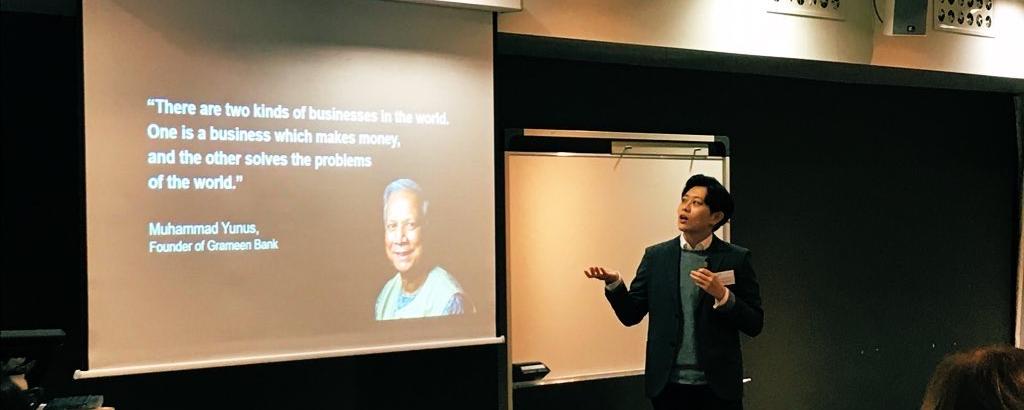
Blog
Meet the minds behind the research: Jean Joohyun Oh
7 January 2020
At the Innovation Growth Lab, we host a Winter Research Meeting every year – an opportunity for researchers and academics interested in experimental policymaking to come together to present and learn about the cutting-edge research behind the innovation policies of the future.
This year, we’ve decided to highlight the people behind the research – understanding the motivations for their work, the effect their research has on the wider world, and further research questions which have come to light over the course of their research.
From gender inclusion, to job creation and societal unrest, the seven researchers who presented in Amsterdam in November highlighted the range of issues that are addressed when we undertake experimental innovation policy research.
In this blog, we’ve interviewed the researchers who presented, to hear more about what inspired them and their work. In part one, we meet Jean Joohyun Oh from Columbia Business School, who presented her paper: “What motivates innovative entrepreneurs? Evidence from three field experiments.”
Jean Joohyun Oh, a PhD student at Columbia Business School, explains her interest in understanding the motivation of entrepreneurs:
“It is central to the process of economic growth: innovative entrepreneurs are the very people who bring us new technologies and innovative products, create jobs and increase well-being and productivity. Yet we know relatively little about their motivations.”
“It’s often assumed that they are driven by profit, but a lot of entrepreneurs actually talk about social impact, or “making a difference”. For example, Henry Ford once said that “a business that makes nothing but money is a poor business.” So we wanted to investigate whether both motivations are actually in play, and which entrepreneurs are more motivated by one over the other.”
Their research’s key finding has great relevance for the wider world because it shows that the “motivations of innovative entrepreneurs differ systematically by gender and culture.” This, she argues, helps us understand how human motivations drive innovation and entrepreneurship. “For the wider world,” she continues, “our findings also shed light on the ‘missing entrepreneurs’ — the disadvantaged or underrepresented groups in entrepreneurship (e.g. women, migrants). Because motivations vary across different groups of entrepreneurs, it is important that organisations in the ecosystem — such as business competitions and accelerators — carefully design and market their programmes to appeal to a diverse pool of participants.”
These findings lead to many further questions. Oh agrees that there is so much more to explore – such as “whether different founder motivations shape business strategy in the early stages of the firm, and what it means for firm competitive advantage.” Her research, for example, may help to explain the barriers that women face when pursuing entrepreneurship – if female entrepreneurs “pitch their businesses in terms of social impact more so than men do, this apparent mismatch of motivations could hinder women’s likelihood of receiving funding even if they have a similar business idea.” Experimental research like this, she hopes, “can shed more light on such barriers and also provide more concrete policy implications.”
We will be hosting the next Research Meeting as part of our annual Global Conference IGL2020 in London on 2 June 2020.
We will release the call for abstracts in mid January. Take the opportunity to present your work to a growing audience of policymakers and researchers working at the cutting-edge of innovation policy.
